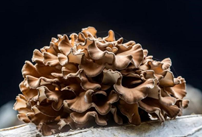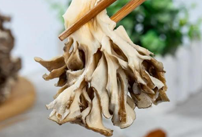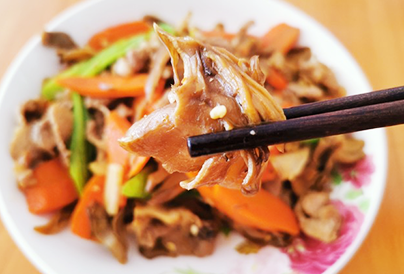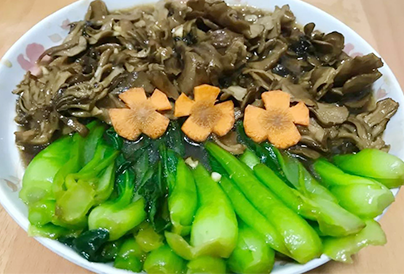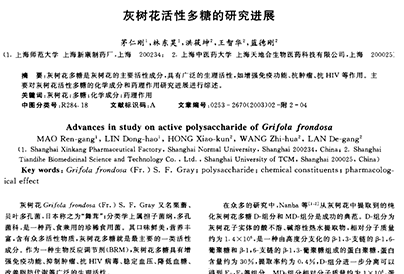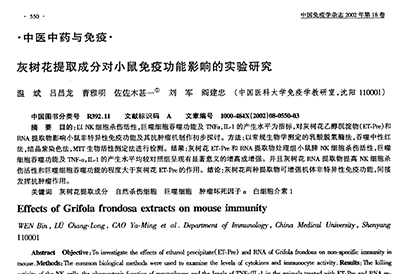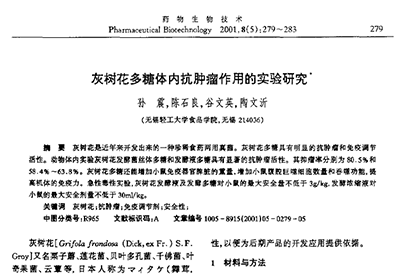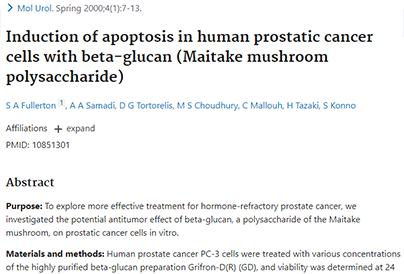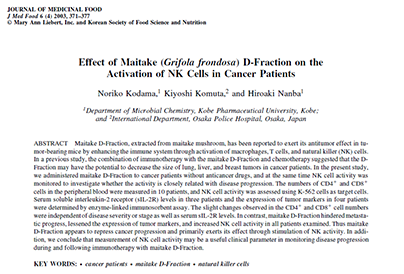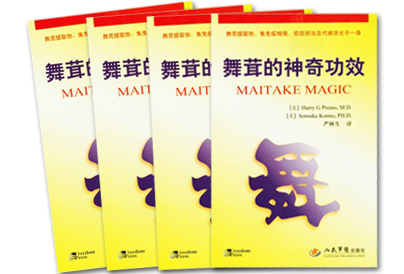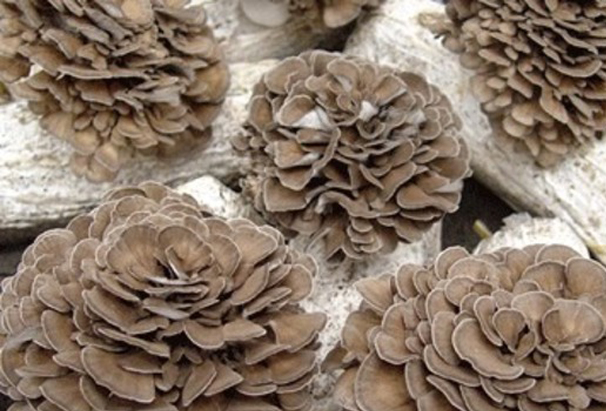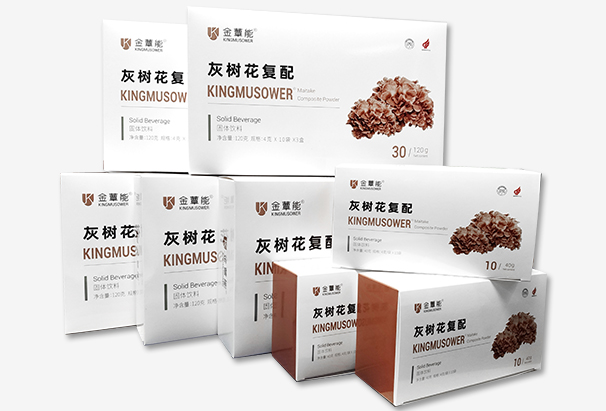According to the latest global cancer data 2020 released by who recently, colorectal cancer (CRC) has become the third largest cancer in the world, and the age of patients is gradually younger. Combined with the rapid increase of the intake of fruit juice, soft drinks and other SSB and meat in recent decades, the high fat and high sugar diet is considered to be one of the reasons for the increase of CRC incidence rate.
Studies have shown that high glucose intake can promote the occurrence of colorectal cancer by causing insulin resistance, obesity and type II diabetes (known risk factors of CRC). However, most prospective studies have reported that there is no significant association between adult glucose intake and colorectal cancer. Considering the physiological decrease of insulin sensitivity and the surge of insulin-like growth factor-1 (IGF1) in puberty, it may be the key period to increase the susceptibility to the adverse effects of high glucose intake, which may affect the early occurrence of CRC.
Recently, researchers from Harvard School of public health and Seoul National University School of medicine in the United States published the research results entitled simple sugar and sugar sweet beverage intake during adolescence and risk of colored cancer precursors in gastroenterology, It can significantly increase the risk of conventional adenoma and high-risk adenoma, especially rectal adenoma.
In order to explore whether puberty sugar intake will affect the risk of CRC, 33106 female participants in the prospective cohort nurses' Health Study II (nhsii) started in 1989 were investigated and analyzed, Participants were regularly asked if they had enteroscopy and the diagnosis. In addition, the researchers also counted the participants in puberty and current BMI, smoking, drinking, diabetes and other chronic history, aspirin history and other covariate information.
The results of dietary survey showed that 12.6% and 4.8% of the participants consumed at least one and two servings of SSB / day during puberty, respectively. The average intakes of fructose and SSB accounted for about 2.6% of the daily calories, which was significantly higher than that of the adult participants. Those with higher SSB intakes preferred red meat, while those with less fruits and vegetables. During the follow-up period, a total of 4744 women were diagnosed with at least one colorectal polyp. Among them, 2909 participants had adenomas (1548 proximal, 1205 distal, 458 rectal and 758 high-risk adenomas), and more than 2355 participants had serrated lesions.
After adjusting the covariate information, logarithmic regression model was used to analyze the correlation between the intake of sugar and SSB and the risk of CRC. It was found that the increase of total fructose intake in adolescence was significantly positively correlated with the risk of adenoma. Every 5% increase of fructose intake per day would increase the risk of total adenoma and high-risk adenoma by 17% and 30% respectively. However, there was no significant correlation between fructose intake and serrated lesions.
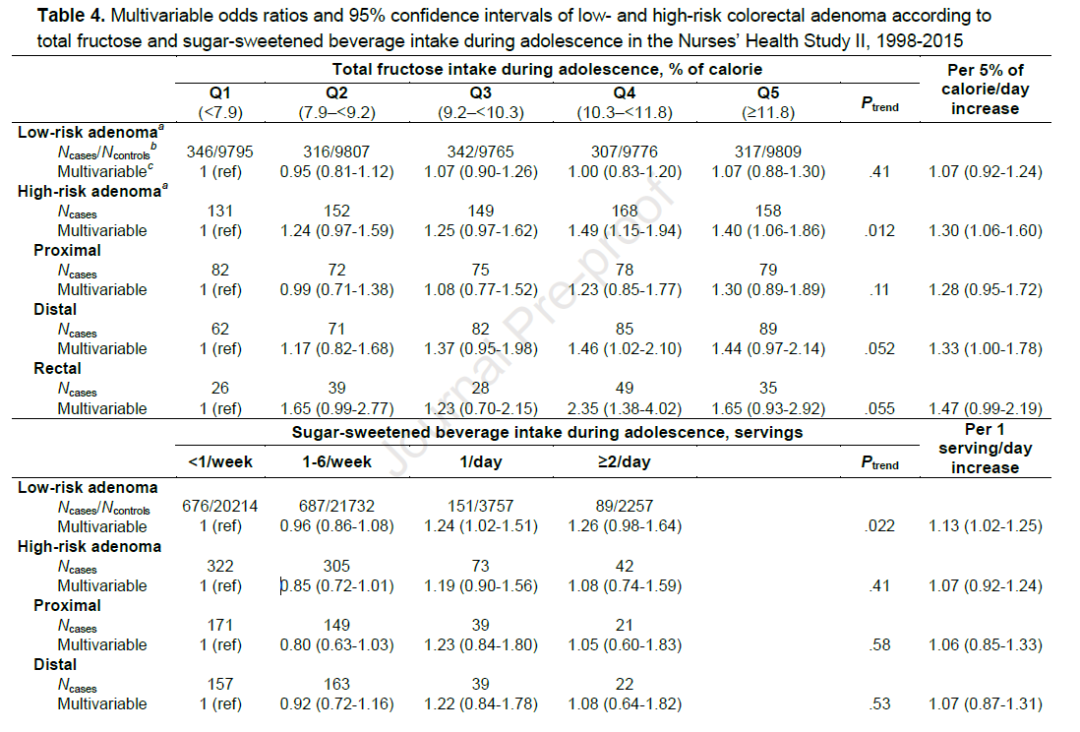
Risk ratio and 95% confidence interval of total fructose intake and colorectal polyps
In addition, the researchers found that higher SSB intake in adolescents was also significantly associated with higher rectal high-risk adenomas, but not with serrated lesions. The risk of rectal high-risk adenoma increased by 34% when SSB intake increased by 1 portion / day. There was no correlation between fructose and SSB intake and high-risk adenoma.
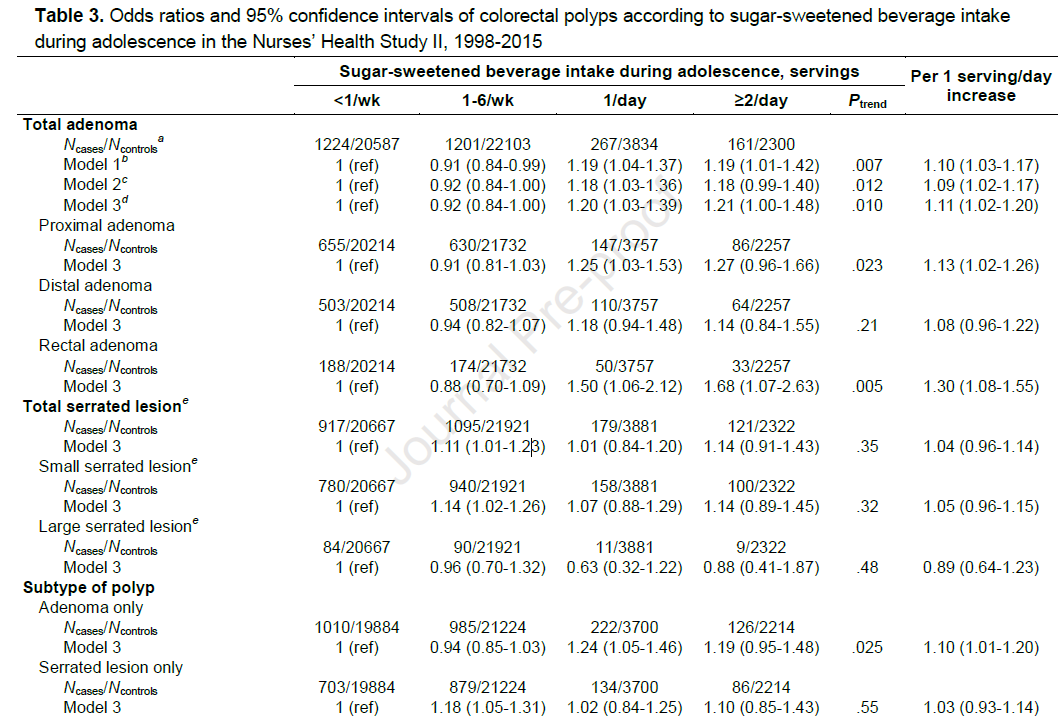
Risk ratio and 95% confidence interval of consumption of sugary beverages and colorectal polyps
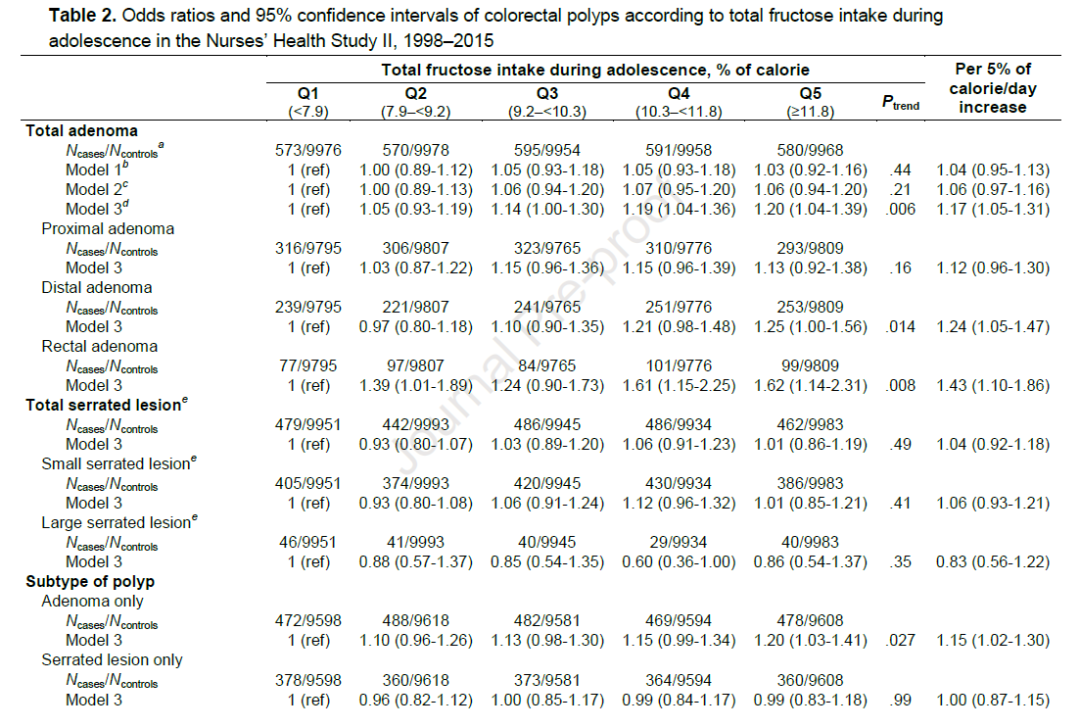
Risk ratio and 95% confidence interval of fructose and sugary beverage intake with low and high risk colorectal adenoma
Adenoma is the precursor of colorectal cancer, if not controlled, it will evolve into colorectal cancer. No matter from weight loss or health considerations, we should try to reduce sugar intake within a reasonable range, especially sugar drinks to avoid Oh!
Source:
https://www.medsci.cn/article/show_article.do?id=c13b20923e53
Original source:
Hee-Kyung Joh, et al. Simple sugar and sugar-sweetened beverage intake during adolescence and risk of colorectal cancer precursors. Gastroenterology, 2021


